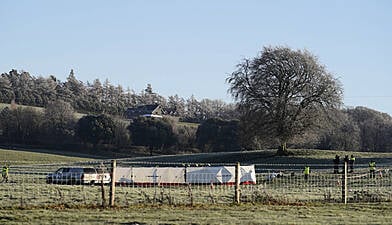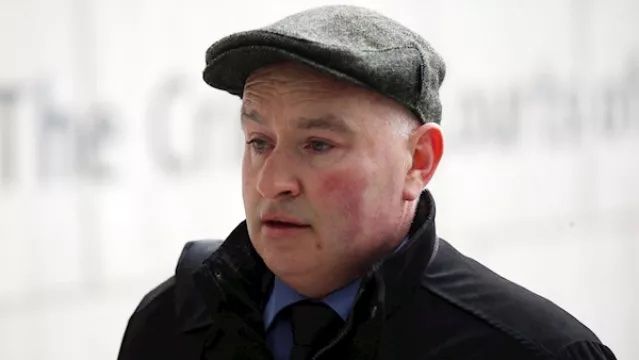The Court of Appeal’s finding that a “suboptimal” warrant was used to seize computers and other items from farmer Patrick Quirke’s home in a Garda investigation into the murder of DJ Bobby Ryan is a “fundamental” issue in Quirke’s appeal, the Supreme Court has heard.
Lawyers for Quirke, who is appealing against his 2019 conviction for Mr Ryan’s murder, said the District judge who issued the warrant was not informed of the intention to seize computers and electronic devices containing the personal data of an entire family, including teenagers.
Quirke’s computer formed a key part of the evidence against him, after it was found to have been used for internet searches on human decomposition and DNA.
At the Supreme Court on Monday, Bernard Condon SC, for Quirke, said there is a duty of candour on gardaí seeking a warrant, which is only lawful if there has been “judicial scrutiny” prior to its issuing.
'Clash of rights'
He submitted the issuing of a warrant engages a “clash of rights” between the investigation of crime and a personal right to privacy.
Due to a lack of disclosure in this case, he said, Ms Justice Eileen Creedon was not permitted to properly weigh these competing rights, in deciding whether or not to issue the warrant.
Mr Condon was addressing a seven-judge Supreme Court at the opening of Quirke’s appeal against his conviction for the murder of DJ Bobby Ryan at Fawnagowan, Co Tipperary.
Quirke (51), of Breanshamore, Tipperary, denied murdering Mr Ryan, a part-time DJ going by the name ‘Mr Moonlight’, who went missing on June 3rd, 2011 after leaving his girlfriend Mary Lowry’s house at about 6.30am.
His remains were discovered in a disused run-off tank on a farm owned by Ms Lowry and leased by Quirke at Fawnagown in April 2013.
A jury at the Central Criminal Court convicted Quirke (53), of Breanshamore, in 2019 by a majority verdict of 10:2 after a 71-day trial and he was sentenced to life imprisonment.
Court of Appeal
All 52 grounds of challenge to his conviction were dismissed by the Court of Appeal.
The appeal court ruled that while the lack of reference to computers was “suboptimal”, the omission was not fatal to the validity of the warrant.
Mr Condon told the Supreme Court on Monday that the Director of Public Prosecutions (DPP) and the Attorney General have not sufficiently addressed the “fundamental question” of why the appeal court found the warrant was suboptimal. He submitted it was “very important” to analyse this finding.
Gardaí seeking the warrant against Quirke relied too heavily on a “residue” clause which facilitated the seizure of “any other relevant evidence”, he said.
Before requesting the warrant they had contemplated seizing a computer and so this should have been communicated to the issuing judge, he added.
The prosecution argued during Quirke’s 15-week trial that Mr Ryan, a DJ known as Mr Moonlight, was Quirke’s love rival and was murdered by Quirke so he could rekindle an affair with farm owner Mary Lowry.

Mr Ryan had been in a relationship with Ms Lowry and was last seen alive as he left her home to go to work on June 3rd 2011.
The prosecution said Quirke staged the discovery of the body as he was about to give up his lease on the farm and feared he would be found out.
Opposing the appeal, the DPP is expected to begin submissions on Monday afternoon.
The appeal is scheduled to continue until Tuesday afternoon before Chief Justice Donal O’Donnell, Ms Justice Elizabeth Dunne, Mr Justice Peter Charleton, Mr Justice Séamus Woulfe and Mr Justice Brian Murray.







